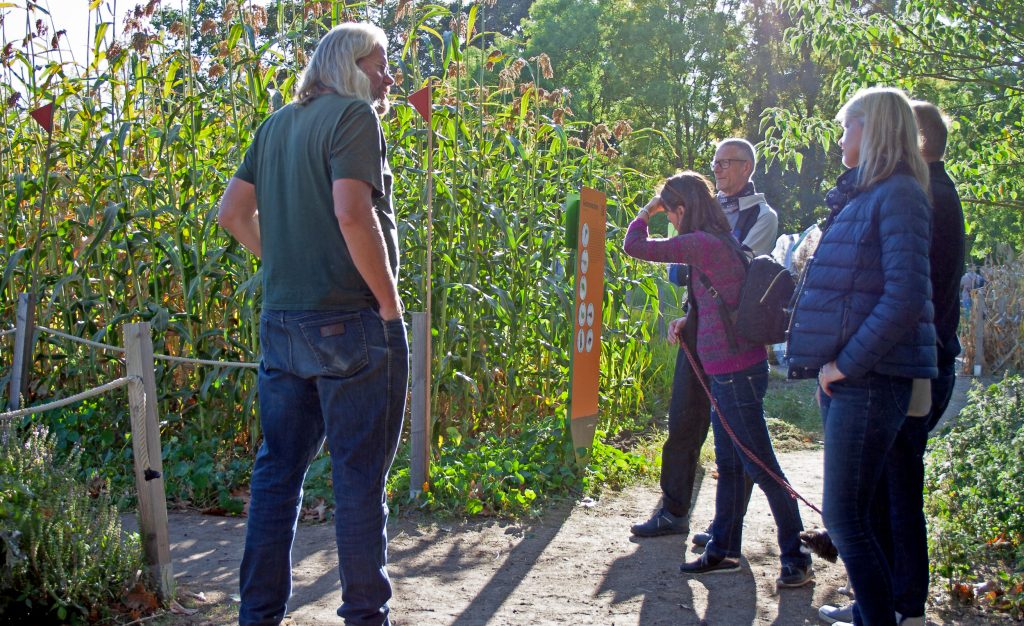
Photo: Carsten Fischer
The World In One Field
If we divide the amount of agricultural land in the world by the number of humans on the earth, every person would receive 2000m² (half an acre). So that is the portion of agricultural land that arithmetically we are entitled to. Everything that feeds us and provides for our needs has to grow on that: wheat for bread, potatoes, cabbage, carrots, also corn and soya as animal feed, and sugar beet for the sugar in our tea and coffee, cotton for T-shirts, sunflowers for edible oil and rape for biodiesel.
The future fertility and biological diversity of our soil depend on how we treat it. In other words, how we work the soil, treat the plants and use the harvest. If we divide up the world’s agricultural land fairly, there is enough for everyone.
Our Objectives
How will we feed ourselves tomorrow? The question is how much land everyone will receive, namely 2000m², if we allocate the world’s agricultural land equally. With the idea of the 2000m² World Farm we are conveying a sense of one’s own role in global agriculture.
We are reducing global challenges to a human scale and thus making them manageable on a practical level: I can build up a relationship to “my” 2000m² and take responsibility for it.
In Berlin-Pankow we are cultivating the agricultural arable crops of the world in the same proportions that they occur around the world – the whole world in one field. In so doing, we are demonstrating imbalances in global cultivation and finding alternatives together.
The 2000m2 Project
… makes soil understandable
With watering-can and spade: in hoeing, sowing and harvesting, urban visitors are given a practical introduction to global usage and distribution of agricultural land. With few words, the ecological, social, economic, health and culinary dimensions of our own consumption of food and agricultural raw materials are explained.
…gets to the root of questions
What do we actually feed ourselves with? How many square metres did I have for breakfast. Where are my 2000m2 to be found – in Germany or abroad? On the Field, answers to these questions are provided and documented on the website. The Field is not only a place for growing beet and turnips – our knowledge can grow as well.
…inspires a re-thinking
Every time we buy food we are sending an instruction to farmers to grow our food a certain way, defining its quantity, quality and price. The 2000m² project enables the visitor to experience in a practical way the connection between our consumption and the cultivation of the land.
… shows the global connections
If I consume more than 2000m², others have to make do with less. If in the EU we in fact consume 2700m² on average, whereas people in China only have 1000m² of arable land at their disposal, that raises basic questions of global justice. The present and planned 2000m² fields in all the world, such as in China, Turkey and Scotland, make clear the global differences as regards climate conditions, types of arable cultivation and harvest yield.
… respects the ecological dimension
We humans are not the only ones living on “our” 2000m². We share it with millions of other creatures, which inhabit this piece of land and whose existence depends on how it is cultivated. “Spaceship Earth” has become increasingly a garden for humanity. Our project aims to raise awareness of our responsibilities as gardeners and help us to live up to them.

